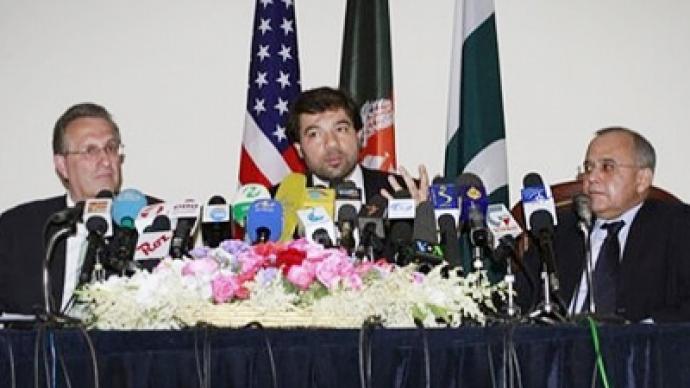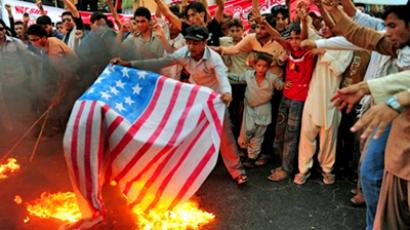Senators eye Afghan progress, remain suspicious of Pakistan

Following the killing of al-Qaeda chief Osama Bin Laden in Pakistan the US sees a chance for progress in Afghanistan but looks at Pakistan with a great deal of suspicion.
Members of the Senate Foreign Relations Committee met recently and saw a need to seize new opportunities – specifically in Afghanistan. "This is a critical moment in the war in Afghanistan," Democratic Senator John Kerry, chair of the Senate Foreign Relations Committee. "It's important that we seize that opportunity.""Middle- and low-level Taliban fighters, many of them want to come in from the battlefield. We need to work with the Afghan government in order to make sure that those who wish to lay down their arms can, in fact, do so," he said.However, militants who wish to continue to struggle remain a problem. That problem however is less of an Afghan issue and more of a concern for Pakistan. The rise in extremism within Pakistan, as viewed by the US, is a point of concern."It will take adroit and persistent diplomacy to convince the Pakistani military leaders that the real threat to their sovereignty comes not from its eastern border and not from across the Atlantic, but it comes from violent extremists in their own country," Kerry commented.Republican Senator Richard Lugar, the ranking member of the committee, echoed similar sentiments. "The question before us is whether Afghanistan is strategically important enough to justify the lives and massive resources that we are spending there, especially given that few terrorists in Afghanistan have global designs or reach," he said. "To the extent that our purpose is to confront the global terrorist threat, we should be refocusing resources on Pakistan, Yemen, Somalia, parts of North Africa and other locations."Meanwhile, as the US grows weary of Pakistan, China is moving in. The Asian power house is playing a strong role in Pakistan, offering financial aid, military aid and then some.Journalist Pepe Escobar from the Asia Times said the Pakistani people are fed up with America and American interference in Pakistani affairs. China saw an opportunity and opted to step-in.As Pakistan, China and other areas of Asia move closer, the notion of Pakistan joining the Shanghai Cooperation Organization, often referred to as ‘the Asian NATO’ lingers. Pakistan is a complex and fragile nation, and the US is clueless, argued Escobar, on how to deal with the situation. Between balancing the India relationship, Turkey and domestic disputes, Pakistan is a daunting challenge. China has offered to significantly aid Pakistan. They have offered to build a join Chinese-Pakistani Navy base in Pakistan. “You are going to have Chinese ships in a Chinese-Pakistani joint military base in the Arabian Sea,” explained Escobar, explaining the importance of increased Chinese-Pakistani relations. In the US many view China as a long-term threat, both economically and militarily. “The Americans don’t even know how to deal with this possibility,” he commented. In addition, China plans to invest in energy and construct gas and oil pipelines to benefit both Pakistan China. Overall China is seeking to make new friend where America is making enemies.














